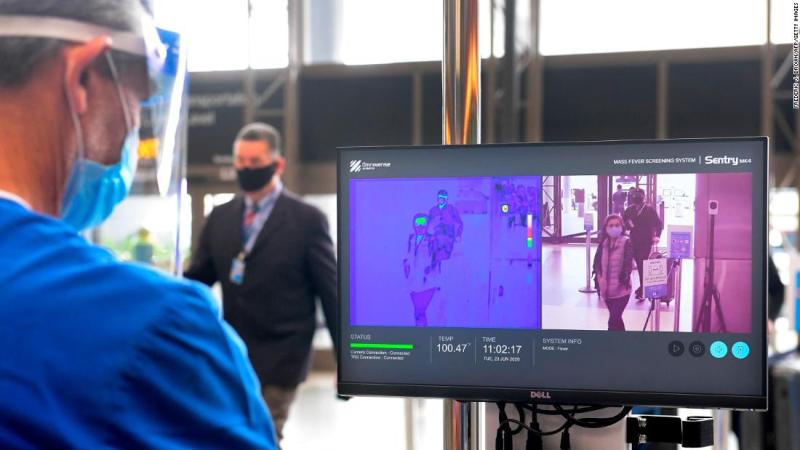Screening travelers for symptoms of Covid-19 was ineffective, CDC study says
By: Jen Christensen (CNN)


A day late and a dollar short. Everyone should recall that the goal of this enhanced screening program was touted as a science based means to avoid closing borders. Detecting infections at departure and arrival points, using scientifically sound methods, meant draconian restrictions on international travel could be avoided. Remember when the expert chorus assured us that travel bans don't work and were unnecessary?
The biggest problem with relying upon scientific advice is that the expert scientists must be correct with their science. Hindsight may justify apologies but an apology won't undo the consequences of bad advice.
Common sense should have informed us that when people are spreading an infectious disease then banning people from entering the country provides greater protection. Contrary to expert advice that hindsight has now proven wrong, the United States should have applied a little common sense and closed the borders early. Now the argument is that these experts should not be held accountable for the bad advice they provided.
Why should we continue to follow the advice of expert scientists who are only making assumptions and guessing?

Temperature and symptom-based screening programs don't help catch coronavirus cases, the US Centers for Disease Control and Prevention said in a new report that took a closer look at the programs used at US airports until mid-September.
In January, the CDC started an enhanced screening program for air passengers arriving from certain countries with widespread transmission of the novel coronavirus.
The goal was to find travelers who were sick and separate them from other passengers, to share information with travelers about self-monitoring and to get their contact information that could be shared with the passenger's local public health department.
The CDC said this was a resource-intensive program that had a low case detection rate. Between January 17 and September 13, the CDC screened more than 766,000 travelers. Nearly 300 met the criteria for public health assessment, 35 were tested for the coronavirus, and nine tested positive. That means the program identified about one case per 85,000 travelers screened, the CDC reported Thursday in the agency's weekly report.
This style of screening doesn't seem to work for a few reasons. Covid-19 has a wide range of nonspecific symptoms common to other infections, there are a high number of asymptomatic cases, travelers may deny symptoms or take steps to avoid detection and passenger data was limited.
The CDC also only shared contact information with local health departments for 68% of the passengers it screened. There were data collection problems, the report said, and some states opted out of receiving the information.
The CDC ended the program September 14. Instead, the CDC has concentrated on communicating more with travelers to promote recommended preventive measures. The agency has also enhanced the public health response capacity at ports of entry.
The CDC said travelers and their local communities would be better protected if there was "more efficient" collection of contact information for international air passengers before they arrive and real-time data that could be sent to US health departments. Pre-departure testing within 72 hours before the trip and testing upon arrival would help, as would rules that would encourage a traveler to self-isolate for a certain period.





Fool me once, shame on you. Fool me twice, shame on me.